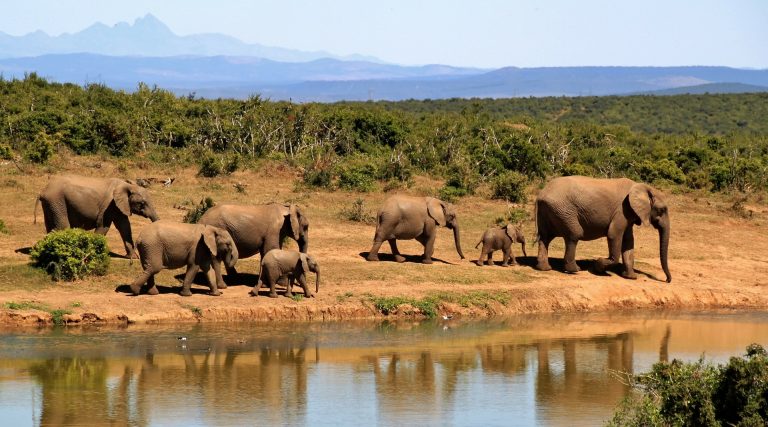
The terrible drought that is affecting southern Africa is starving millions of people and is also endangering wildlife. In Zimbabwe at least 55 elephants (Loxodonta africana) have died of hunger and thirst. Moreover, in the last two months, more than one hundred pachyderms have died in Botswana.
Alarming Data
The news has been reported by the Department for Wildlife and National Parks of Botswana. It has experienced unusually high mortality rates, both from elephants and other wildlife, particularly in the Chobe National Park area in the north-west of the country.
“More than 100 elephants have died in the last two months – says a note released by the department – while this week there have been fourteen deaths.”
The NGO Elephants Without Borders said that, according to aerial surveys, there has been an increase in elephant mortality of 593 percent between 2014 and 2018.
Although the drought has exacerbated the situation, the main cause of this alarming decline remains poaching.
According to preliminary investigations, some animals have died as a result of the prolonged drought, which led to their exhaustion. Others, on the other hand, have died from anthrax (Bacillus anthracis). This bacterium is found in the soil and can affect animals when they come into contact with or consume spores. “Because of the severe drought, elephants end up swallowing the soil while grazing and are exposed to the spores of anthrax bacteria,” explained the department.
The Last Refuge for Elephants
In order to reduce the risk of infection, the body has declared that it will burn the contaminated carcasses. It also called on the population not to touch or eat meat from animals found dead under any circumstances. Botswana is home to almost a third of Africa’s elephants, about 130,000 – more than any other country in the world. However, the number of elephants is constantly decreasing due to poaching. Moreover, last May, the Botswana government lifted the ban on trophy hunting introduced in 2014.
In response to the drought-related difficulties, Botswana has sold thirty young elephants to another country believed to be China. According to the Department of Wildlife and National Parks of Botswana, this was an inevitable decision. “We will use the proceeds of the sale to dig wells to save other wild animals,” said Tenashi Farawo, spokesman for the department. However, this operation has been widely criticised by various animal welfare organisations, including Advocates4Earth.
Fortunately, a proposal to ban the sale of African elephants outside the continent was approved at the CITES summit last August. However, we still have to wait for it to be ratified.




